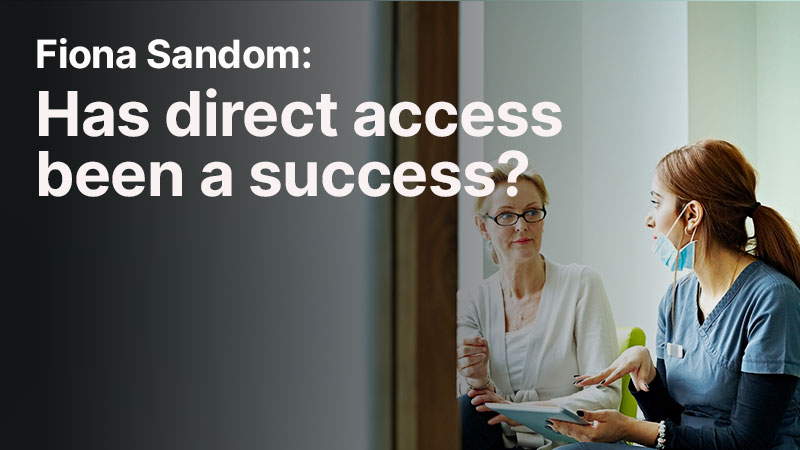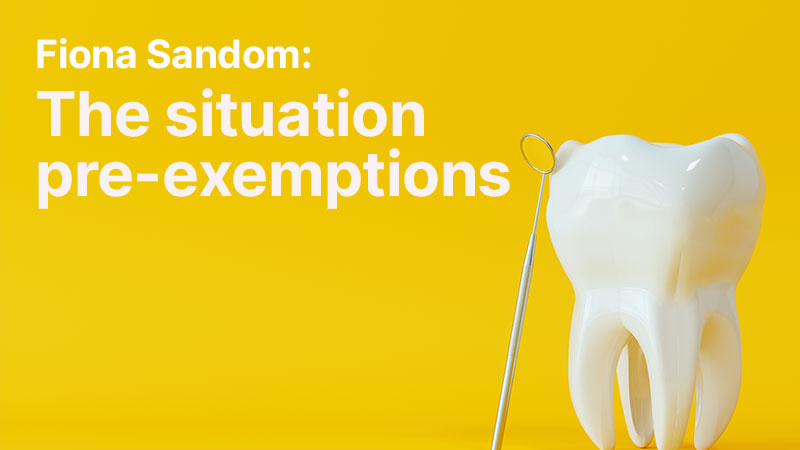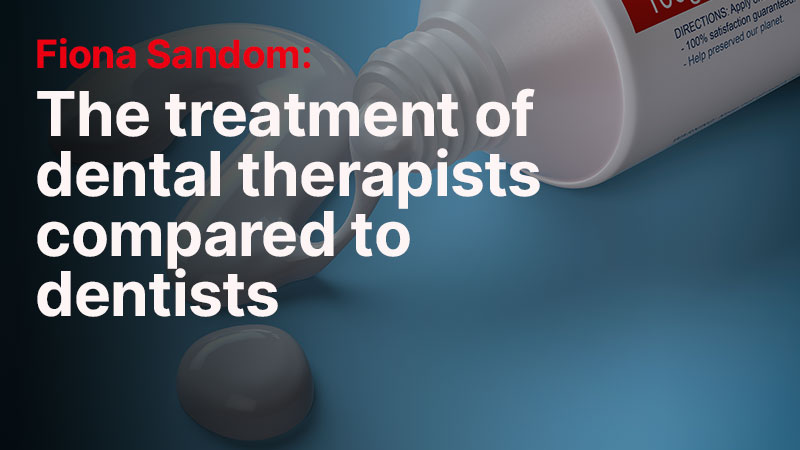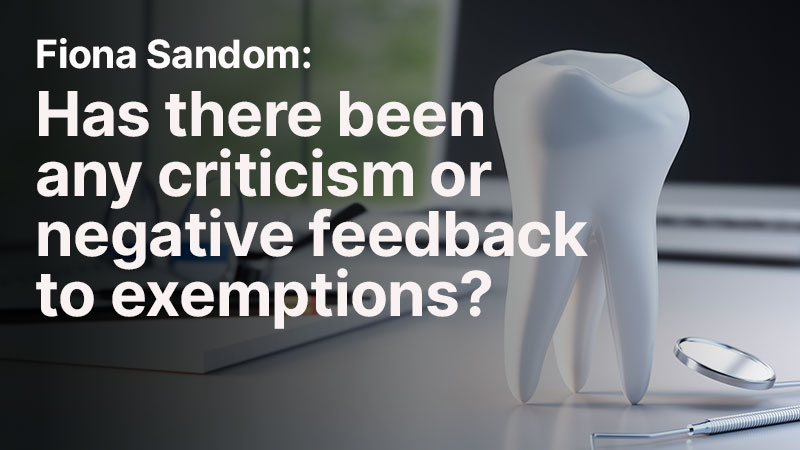So you mentioned that that it's not, it's not compulsory that this is going to happen,
it's going to be, um, up to the individual therapists or their,
or their practises. What, how should a dental therapist approach
their, the principal or approach the, the, the company to actually have this discussion and
see if it's a viable option for them or how to work it?
What, what would you advise them?
Yeah, so You know, I'm a, I'm any situation, I'm a great advocate of going to speak to
whoever it is that you need to speak to.
You know, you can't, you can't, you can't ever talk too much about something,
you know, it's, it's always good to get it out there.
So the GDC has been very clear that we don't have to work under direct access if we don't
feel confident um to do so, so remembering we need to be.
Um, trained, competent, confident, and indemnified for anything that we do.
So if we don't feel confident or competent to do that,
then we shouldn't do it. So, you know, if you don't feel confident to
work under direct access and you don't feel confident, and you don't want that additional
responsibility of, uh, using the exemption mechanism, no one's going to force you to do
that. So you don't have to do it.
Um, It's, you know, about where you're comfortable and working within your scope,
and we need to think about that in terms of patient safety and everything else.
Um, for those people that are like, well why should I do it?
Um And if you're sort of in doubt and you don't feel that you,
you know, if you feel competent to do so, um, I would say just the,
the lack of having to disturb your day, being able to have your own autonomy,
having that option.
Of, you know, making, making a decision, being able to sort of carry out the treatment without
having to scuttle off next door upstairs, pick up the phone,
write an instant message, um, will make working life so much easier,
be safer for the patient. We've already established that in terms of,
of sort of risk.
Um, and it'll just, you know, give you more autonomy and help us grow further and,
you know, Develop.
If we think back to 1963 when dental therapists were 1st,
1st trained and we had to work in the prison, hospital or community dental services,
we were only allowed to treat primary teeth, and we couldn't give an ID block to where we've
come now. I mean, I, because obviously I'm a lot,
you know, I'm getting to the sort of.
towards my retirement years, I was like 1963 isn't that long ago,
but I I suppose some of the newly qualified 1963 is when your grandmother was born.
But yeah, the world was black and white and the only pay phones existed.
um, but. Yeah, so it's not that long ago that we've come
this far to be able to open courses of treatment, work in any sector of dentistry,
you know, work in academia, all of the things that, you know,
people can do now.
Um, so why not push the boundaries and keep us pushing forward and make,
you know, get that parity and prove our worth, really.
Fiona Sandom: How to approach the conversation in practice
16 June 2025
Dental therapist, dental educator and past president of the BADT, Fiona Sandom, discusses how dental therapists can approach their dental practice about working under direct access.




